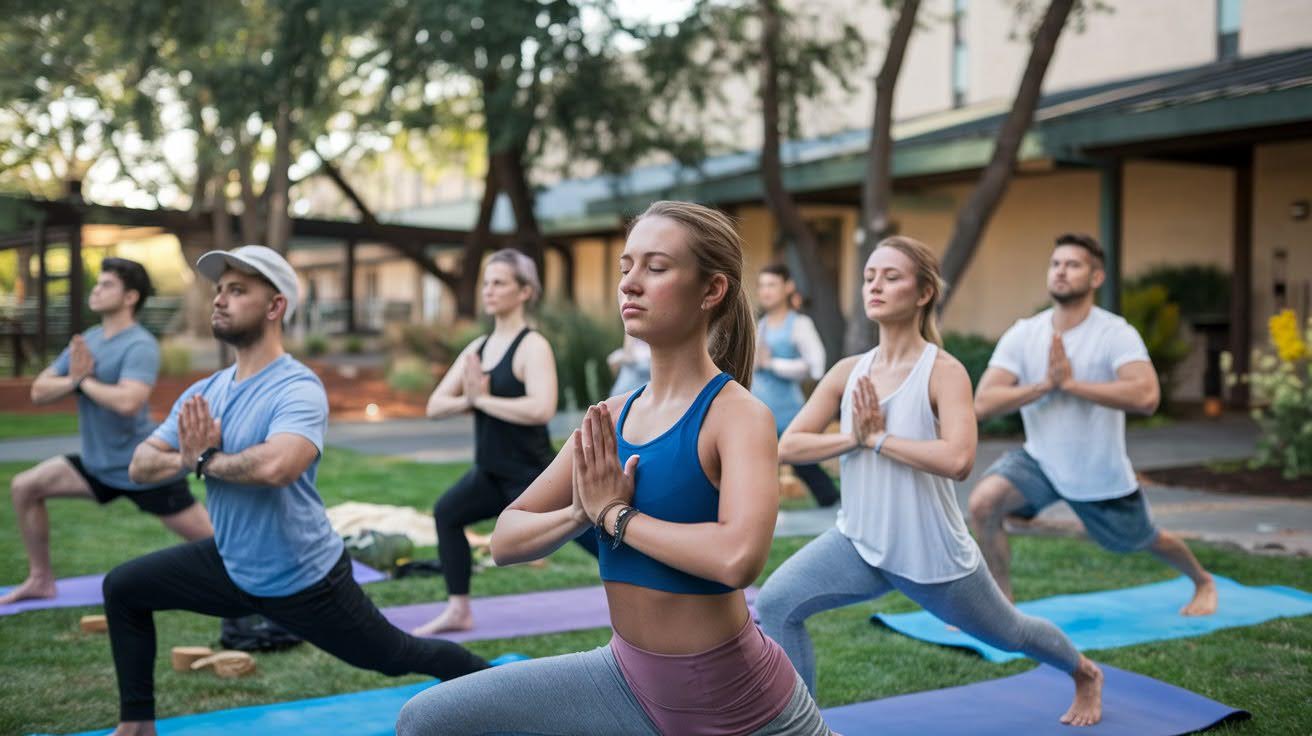
How Can Holistic Practices Aid in Addiction Recovery?
Key Takeaways
-
Holistic practices focus on healing the whole person—mind, body, and spirit.
-
These methods, including mindfulness, yoga, and nutrition, complement traditional addiction treatments.
-
Incorporating holistic practices can reduce stress, manage triggers, and support long-term recovery.
Introduction
Recovering from addiction is not just about stopping substance use—it’s about creating a healthier, more balanced life. Holistic practices provide a valuable way to achieve this by addressing physical health, emotional well-being, and mental resilience. These methods don’t replace traditional addiction treatments but enhance them, offering a comprehensive approach to recovery. In this guide, we’ll explore the role of holistic practices in addiction recovery and how they can make a significant difference.
1. What Are Holistic Practices?
Definition
Holistic practices treat the whole person rather than focusing on a single issue. They emphasize the interconnectedness of the mind, body, and spirit, helping individuals achieve overall well-being.
Holistic vs. Traditional Methods
While traditional addiction treatments focus on detox and therapy, holistic practices complement these approaches by addressing deeper emotional and physical issues. For example, a person undergoing detox might use mindfulness to manage anxiety, enhancing the effectiveness of medical care.
Why They’re Effective
Addiction often stems from underlying causes like stress, trauma, or emotional pain. Holistic practices address these issues by promoting relaxation, self-awareness, and emotional healing. They empower individuals to develop healthier coping mechanisms.
2. Common Holistic Practices in Addiction Recovery
Mindfulness and Meditation
Mindfulness involves focusing on the present moment without judgment. Meditation, a key mindfulness practice, helps reduce stress, calm the mind, and build emotional resilience. For someone in recovery, mindfulness can make it easier to manage cravings and avoid relapse.
Yoga and Physical Exercise
Yoga combines physical movement with mindfulness, creating balance and peace. Regular exercise, whether it’s yoga, walking, or weightlifting, releases endorphins that naturally improve mood and combat depression, which often accompanies addiction.
Nutritional Therapy
Substance abuse can deplete the body’s nutrients, leading to physical and mental health challenges. Nutritional therapy restores balance by providing the body with essential vitamins and minerals. A balanced diet improves energy levels, stabilizes mood, and supports overall recovery.
Art and Music Therapy
Creative outlets like art and music allow individuals to express emotions they may struggle to express. These therapies can reduce anxiety, build confidence, and help individuals process their recovery journey.
Acupuncture
Acupuncture involves inserting thin needles into specific points on the body to restore balance. In addiction recovery, it can help reduce withdrawal symptoms, alleviate stress, and promote relaxation.
3. Benefits of Holistic Practices in Recovery
Enhanced Emotional Resilience
Holistic methods, such as mindfulness and art therapy, teach individuals how to process emotions healthily. This resilience helps them handle stress without resorting to substance use.
Improved Physical Health
Physical health is often compromised by addiction. Holistic practices like yoga and nutrition therapy repair damage, rebuild strength and promote long-term wellness.
Stronger Mind-Body Connection
Recovery requires harmony between mental and physical health. Practices like yoga and mindfulness foster this connection, enabling individuals to better understand and respond to their body’s needs.
Relapse Prevention
Holistic tools provide strategies for managing triggers and cravings. A regular mindfulness practice, for example, can help an individual pause and reflect before acting on an urge to use.
4. Incorporating Holistic Practices into a Recovery Plan
Personalized Approach
Holistic recovery is not one-size-fits-all. Each person’s journey is unique, and the best results come from tailoring practices to individual preferences and needs. For example, someone who enjoys creative expression might benefit more from art therapy, while another might thrive with yoga.
Combining Traditional Treatment
Holistic practices work best when integrated with traditional treatments like therapy and medication. Together, they form a comprehensive recovery plan that addresses all aspects of a person’s health.
Seeking Professional Guidance
Working with addiction specialists ensures that holistic practices are effectively incorporated. Professionals can recommend techniques, track progress, and adjust the plan.
5. Success Stories and Evidence
Research Supporting Holistic Practices
Studies have shown holistic approaches, such as mindfulness-based stress reduction and yoga, significantly improve recovery outcomes. These methods reduce anxiety, improve mood, and enhance coping skills, making long-term sobriety more attainable.
Personal Testimonials
Many individuals in recovery credit holistic practices with transforming their lives. For instance, one recovering addict shared how yoga helped them reconnect with their body and find peace, while another found solace in creative expression through art therapy. These stories illustrate the powerful impact of holistic methods.
Conclusion
Holistic practices offer a valuable way to support addiction recovery by addressing the whole person. Whether through mindfulness, yoga, or nutrition, these methods enhance traditional treatments, fostering emotional, physical, and mental well-being.
If you or someone you love is ready to explore a holistic approach to addiction recovery, contact Virtue Recovery Killeen at 725-777-5685. Our dedicated team is here to help you every step of the way.
FAQs
What are holistic practices in addiction recovery?
Holistic practices focus on treating the whole person—mind, body, and spirit—using techniques like mindfulness, yoga, and nutrition therapy.
Can holistic practices replace traditional treatments?
No, they are most effective when combined with traditional treatments like therapy and medication.
How does mindfulness help in addiction recovery?
Mindfulness helps manage cravings, reduce stress, and build emotional resilience by teaching individuals to stay present.
What are some easy ways to start incorporating holistic practices?
Begin with simple practices like deep breathing, daily stretches, or journaling, and gradually explore methods like yoga or meditation.

Comments (0)